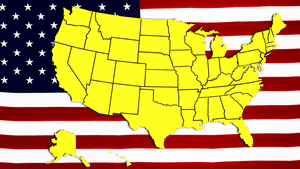A California judge is tapping the brakes on a lawsuit defending the free speech rights of Russian trolls. U.S. sanctions are preventing the American lawyers behind the suit representing their Russian client in court, the judge says.
Lawyers from two different firms are representing the Federal Agency of News, or FAN, in a suit accusing Facebook of wrongly discriminating against the St. Petersburg-based propagandists, who were banned from the site last April. The lawsuit seeks unspecified financial damages and an injunction forcing Facebook to reinstate FAN’s accounts.
“In fact, Facebook, while claiming to protect the public from ‘fake news’ is actually engaging in censorship and denying FAN subscribers of access to a legitimate news organization,” the complaint argues.
Federal prosecutors describe FAN as a corporate sibling to the notorious Internet Research Agency. Both are part of the covert influence empire financed by Yevgeny Prigozhin, a.k.a. “Putin’s Chef,” a Russian restaurateur who also owns a mercenary army deployed to 10 countries. In the past, FAN and the IRA have shared both staff and office space. And Virginia prosecutors have charged a FAN employee named Elena Alekseevna Khusyaynova with handling the finances for disinformation operations at both groups, as well as nearly a dozen other shell organizations operating under the umbrella “Project Lakhta.”
When FAN filed the complaint last November it hadn’t yet been targeted with the kind of sanctions levied on the IRA—a point the Russians cited as evidence that Facebook targeted them for no other reason than their Russian nationality. “The U.S. government has not taken any actions whatsoever against FAN… There is, therefore, no reason to believe that FAN engaged in any illegal or any conduct that violated Facebook’s Terms of Service or any U.S. law.”
Unfortunately for the trolls, barely a month after they filed the lawsuit the facts changed. In December, the State Department and the Treasury Department explicitly added FAN to the government’s blacklist of individuals and companies involved with the 2016 election interference—at once weakening FAN’s case against Facebook, and raising a new procedural challenge that threatens to derail the case entirely.
With sanctions in place, Americans are broadly prohibited from doing business with FAN. But the regulations carve out an exception for lawyers, said Mohsen Zarkesh, an attorney at Price Benowitz specializing in sanctions law. The government “doesn’t necessarily want to hinder legal representation,” he said. “The underlying purpose of sanctions is for persons or entities to change their behavior,” said Zarkesh. And when it comes to corporate behavior, it’s hard to change anything without lawyers getting involved on all sides. “So if you’re not allowed to hire an attorney to interact with the government, or to file petitions with the courts, the sanctions wouldn’t make sense.”
The problem is, to avail oneself of the exception, the lawyers have to apply for a license from the Treasury Department’s Office of Foreign Assets Control—a tiny hurdle that, as of Friday, FAN’s hired legal guns in San Francisco and DC hadn’t yet cleared.
Those licenses are normally granted to lawyers easily, said Zarkesh. Once they have the license the attorneys can be paid by their client regardless of the sanctions, though they’re required to keep diligent records of every transaction for future examination by the government “for at least 5 years after the date of such transaction.”
Last week the judge overseeing the lawsuit in Silicon Valley expressed impatience with the missing paperwork two months after the sanctions were put in place, and opted to hit the pause button on the whole thing.
“Plaintiffs’ counsel has still not obtained a special license from the Office of Foreign Assets Control (“OFAC”) to represent Plaintiff in the instant case,” wrote U.S. District Judge Lucy Koh in a Friday stay order. “This case cannot proceed without that special license.”
FAN’s San Francisco counsel did not respond to an email inquiry for this story.
Organizations like FAN pose a special challenge for Facebook’s fake news crackdown. Where the IRA is all about masquerading—simultaneously posing as alt-right conservatives and black rights activists during the 2016 election, for example—FAN positions itself as a legitimate news agency and does little to hide its connection to the myriad websites and social media pages it operates. And though FAN’s content is peppered with inaccuracies, judged on its own merits it’s scarcely more deceptive than some publications that Facebook tolerates.
That puts it right in the murk when it comes to Facebook’s policies. The company has been publicly struggling with how to handle state-owned or quasi-legitimate “news” agencies that operate under a brand instead of an alias. Last week a query from a CNN reporter sent Facebook on a frantic ban-spree against pages controlled by Maffick Media, a publisher with unconcealed but unadvertised links to Russia’s state-owned RT television network. Three days later Facebook sheepishly backpedaled and restored those accounts.
The FAN lawsuit takes full advantage of Facebook’s confusion. “Facebook seeks to dictate news content based upon its own political viewpoint thereby attempting to influence the public media coverage of internal political events in the Russian Federation,” FAN’s lawyers wrote in the complaint.
It’s not the first time a Prigozhin-linked company has turned to the American justice system. Prigozhin’s catering firm Concord Management and Consulting has retained a slew of Washington, D.C. legal talent to defend Concord from one of Robert Mueller’s election interference indictments. By making an appearance through his company, “Putin’s Chef” has been able to file an avalanche of combative motions through his lawyers, and issue extravagant demands for legal discovery, without having to set foot on American soil, much less in an American courtroom.
Some of the non-sensitive material handed over to Concord was later altered and repurposed in an anonymous disinformation campaign targeting Mueller, according to government filings in the case. Could Prigozhin have that kind of jurisprudential trolling in mind for the Facebook lawsuit as well? For now, we’ll have to wait to find out.







